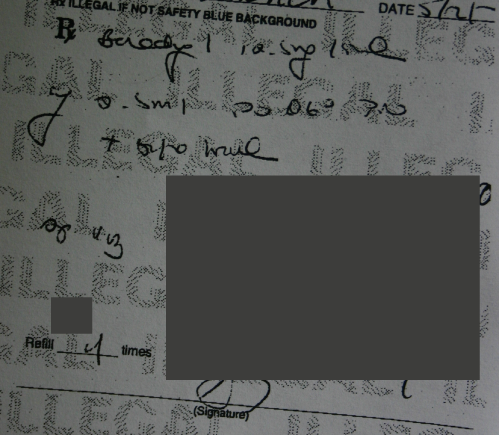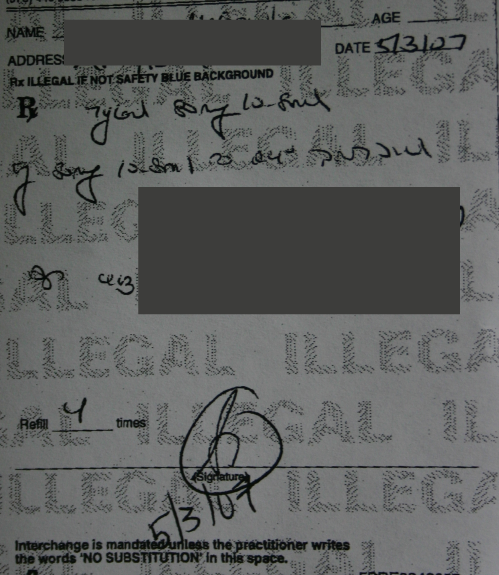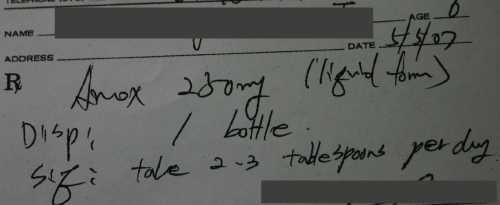I suspect a great many doctors shoot from the hip when it comes to refills. What makes me think this?
Well there’s this weird little loophole in our automated refill request line where someone can request a refill and trigger an auto-fax to the doctor if the script has expired or run out of refills. It’s all automatic — no pharmacy personnel even see the refill request before it gets sent. Our computer systems aren’t typically smart enough to check and see if there’s a replacement prescription in patient’s profile already.*
What’s amusing is that often this second prescription differs from the first. Not significantly, but where the first might have 5 refills, the second has 3. Or 11. Or maybe zero. Often we’ll get two scripts with the old refill number on it sent back on the same day, each with a different number of refills, usually in the same handwriting. This makes me wonder… how are you guys charting this stuff?
Is this why we get phonecalls asking what strength of a drug a patient is taking? And how are they taking it? And please give them six months worth of refills?
Not to beat the EMR drum — because I don’t think they’re perfect either — but I have never seen this happen with an EMR.
It makes me scratch my head. Shouldn’t the order of operations be something like:
- Request comes in and is put aside for later perusal.
- Patient’s file is checked
- A determination of the appropriateness of a refill is determined.
- The number of refills is written on the request AND the patients chart — along with any changes.
- Chart is closed, request form is faxed back to the pharmacy and then thrown away or placed in the patient’s files once you get the confirmation that the fax has gone through successfully.** If not, re-fax periodically until it does go through, or if it’s a constant problem, just CALL it in. That’s what we do when we can’t get a fax through.
Just askin’.
* This seems a good time for a digression. This little loophole, I suspect, is where the aggravation on a prescriber’s part that a prescription refill request has already been responded to, comes from. “I already took care of this, dammit! Why am I seeing it again?” Well now you know that patients can trigger second (and third, and fourth) requests all on their own, with no human intervention. This seems to be popular with elderly people who will often try to call in the same refill four days in a row before they actually come down to the pharmacy “just to make sure it’s there” — and our system isn’t smart enough to catch it and weed it out. It sucks. I hope this loophole is closed, too, because some pharmacy personnel aren’t smart enough to throw those second and third redundant prescriptions away when they come off the fax machine. They’re not real, people. Just toss ’em.
** Another digression: when irate patients come in demanding to know why the pharmacy doesn’t have a prescription because Goddammit-I-spoke-to-Jane-at-DrBob’s-office-this-morning-and-she-said-it-was-faxed-last-Thursday- what-the-fuck-is-wrong-with-you-people and we call the office, and get a sheepish “Oh, it was faxed but it says the line was busy. Sorry. We’ll do it now.” — it really tends to piss us off.



